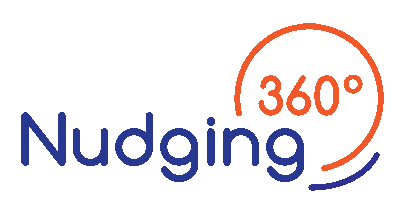“Nudging” is a concept where subtle cues or suggestions are provided to gently steer people’s behaviour or decisions towards a desired outcome, without forcing them or taking away their choice. Nudging has gained popularity in recent years as a tool for policymakers and marketers, who aim to influence behaviour in a way that is beneficial for individuals and society as a whole. Nudging can be a powerful tool when used appropriately, but it also raises ethical questions about the limits of manipulation in shaping individual choices. The Nudging 360 project takes this concept and applies it to staff working in HEIs, to help improve their digital competencies.
Digital nudging is the practice of using digital interfaces, such as websites, apps, or other online platforms, to influence people’s behaviour in a positive way. It involves using small design features or interventions, such as default settings, framing, social proof, or feedback, to guide users towards a desired action or choice.
The final resources of the project will comprise of:
- A Nudging Ethics Council- a group of experts that will oversee the production of our work, ensuring that it is ethically sound.
- A Needs and Prioritisation Map- primary and secondary research conducted in all partner countries, highlighting where HEIs need to improve digital skills.
- A Nudging and Self-nudging Toolkits- Two different toolkits designed to help you implement nudges into your day. One is for self-nudging, the other is for regular nudging.
- Video training for HEI Administrations and a MOOC for self-Nudging HE educators / staff.

